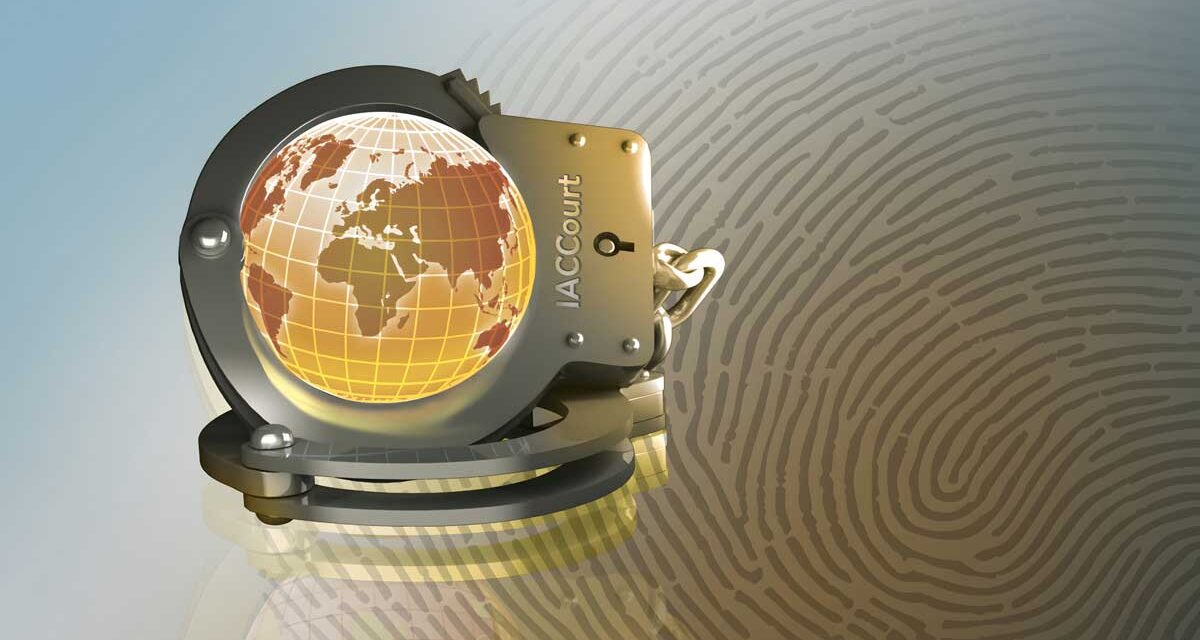The proposal to establish an International Anti-Corruption Court (IACCourt) continues to gain momentum.
The IACCourt would fill a crucial gap in the global anti-corruption architecture by providing an independent and impartial mechanism to investigate, prosecute, and punish kleptocrats. With its credible risk of prosecution, the IACCourt’s criminal division would deter acts of corruption and help end the impunity that encourages kleptocrats and their enablers to loot national treasuries.
The structure and authority of the IACCourt will be set out in a treaty on which intensive work has been underway for many months – ironing out the myriad issues that have arisen. It may be some time before the draft treaty is published, but key features of the IACCourt are known.
The court will operate, like the International Criminal Court (ICC), on the principle of complementarity. Each state will retain its sovereign authority to investigate and prosecute corruption offences. Only where states are either unable or unwilling to do so will the IACCourt take jurisdiction. In terms of “unwilling”, think, for example, of states that are “captive” to a corrupt regime that controls the police, prosecutors, and the courts.
The IACCourt will also be helpful to states that are “willing” to prosecute wrongdoers but feel they are “unable” to do so. One thinks of Guatemala, Moldova, Bangladesh, Zambia, Seychelles, and perhaps, soon, Serbia, where governments are recovering from corrupt regimes and want to see prosecutions brought but have not yet established the capacity to conduct them. In such cases, the states can ask the IACCourt to take jurisdiction.
As to which laws the IACCourt will enforce, the 186 United Nations member states that have signed the UN Convention against Corruption (UNCAC) are obligated to enact domestic legislation prohibiting the principal corruption crimes (including bribery, embezzlement, and money laundering). The IACCourt will enforce these laws in cases where it has jurisdiction.

Photo: Michael Raines / Getty Images
While concern has been expressed about the operating costs of the IACCourt, it is designed to be more cost-effective than the ICC. For example, the IACCourt will not have a pre-trial chamber, will avoid the expense of a “standing judiciary” by engaging judges as needed to manage the caseload, and will, wherever possible, use courtrooms furnished by state signatories rather than building its own facilities in The Hague. Furthermore, the IACCourt will be able to use revenue provided by fines levied on conviction to help finance its operations.
An additional feature of the IACCourt holds singular promise for developing countries. The new court will have two separate divisions: the first to carry out criminal prosecutions and the second to adjudicate on questions that relate to the recovery by victim states of looted assets. That second, or Assets Division, will be available not only to states party to the treaty that establishes the IACCourt but also to any state on an ad hoc basis.
The Assets Division will play a crucial role because no matter how efficient and effective the Criminal Division may be, its rulings will necessarily touch only a fraction of the billions in illicit financial flows each year. And while the court will have authority after conviction to order the return or repurposing of the proceeds of corruption, criminal convictions by themselves will simply not have the capacity to enable the repatriation of all money stolen by kleptocrats.
The Assets Division will hear, consider, and determine contested questions relating to the origins, ownership, and return of looted assets other than those connected with a criminal prosecution. In a case in which there might be potential prejudice to a person facing trial in the Criminal Division by proceedings in the Assets Division, the criminal proceedings will take precedence, with the civil or recovery proceedings stayed if necessary to avoid harming the accused’s right to make full answer and defence.
The need for such a judicial resource is clear. Asset recovery is at present an uncertain, uneven, and often unfair process, depending as much on improvised steps as settled practice. Where the state that holds the contested assets (ordinarily frozen) refuses to send the money back, the victim state is left with little practical recourse. Resort to the (non-UN) intergovernmental Permanent Court of Arbitration (PCA) involves a complex procedure, and invoking the jurisdiction of the UN’s International Court of Justice (ICJ) takes much time. There have been cases in which substantial sums have remained beyond the reach of victim states because the country that holds them refuses their return. So, instead of having the resources to build infrastructure, fund social services, or provide healthcare, the victim state must watch in frustration as the stolen assets languish in the accounts of a foreign state.
The Assets Division will have the authority to receive and adjudicate upon any question relating to the return and recovery of assets from one state to another.
This division will decide issues using the civil standard of proof (“balance of probabilities”) rather than the more exacting criminal standard (“beyond reasonable doubt”). Any person claiming an interest in the assets can seek the opportunity to be heard, and there will be scope for the intervention of those who wish to have their rights considered or their responsibilities determined.
The Assets Division will have the power to freeze assets pending the disposition of the proceeding. In cases where there is concern that the assets, on return, might be re-stolen, the division will be empowered to direct that the value of the assets be repurposed in a way that will benefit the victim state’s population by, for example, transferring the assets to a civil society organisation that will disburse the proceeds for a socially beneficial purpose. This division of the IACCourt will also have authority to direct that disposition of the assets be monitored to ensure compliance with its order.
A roster of qualified judges proposed by state parties will be maintained for the Assets Division, with cases assigned based on availability. Procedure in the division will be kept simple, with the emphasis on the expeditious resolution of issues in accordance with principles of justice and equity. The objective will be to afford due process while producing relatively rapid results.
In sum, the Assets Division will perform an important role distinct from that of the Criminal Division by focusing on the proceeds of corruption instead of on the perpetrators, on civil remedies rather than on criminal prosecution, and on restitution over punishment. In so doing, it will provide states that are the victims of corrupt officials with a path to recover their looted assets.

Allan Rock
Allan Rock is a member of the World Refugee and Migration Council, and a former Attorney General of Canada and Canadian Ambassador to the United Nations. He is a member of the team, chaired by Justice Richard Goldstone, that is drafting a treaty that would establish the International Anti-Corruption Court.













